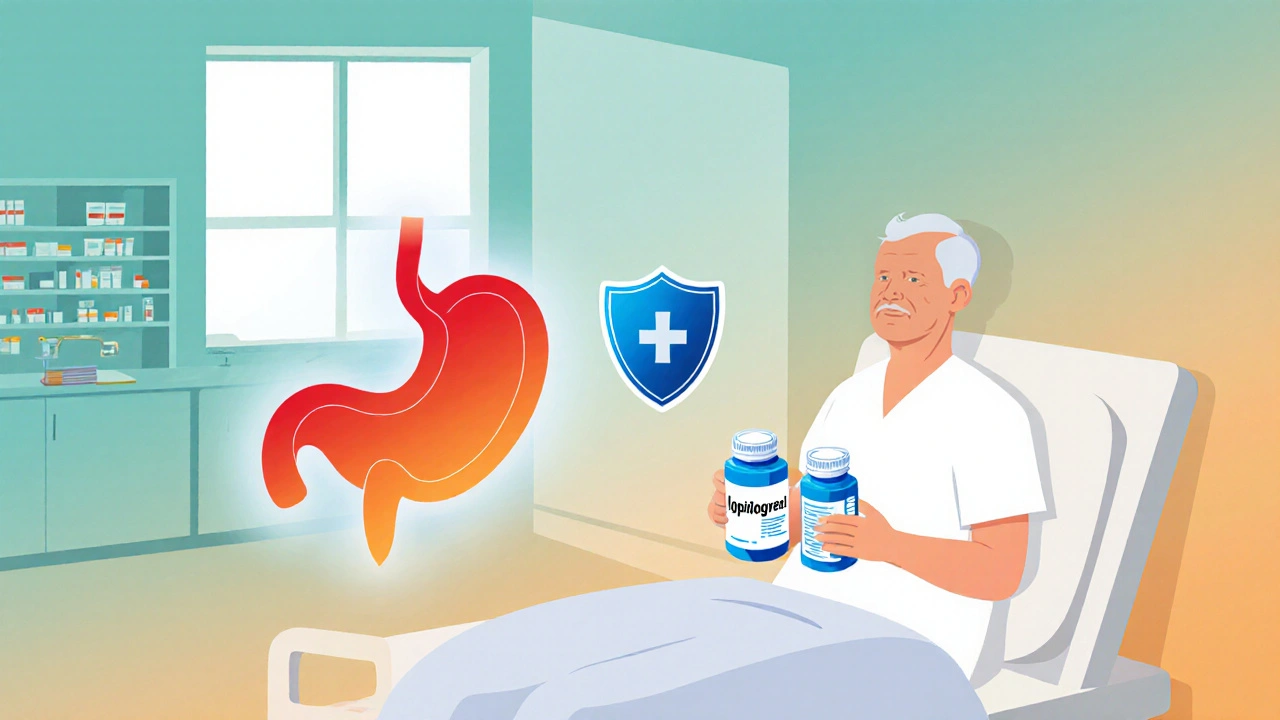Learn how adding a proton pump inhibitor to dual antiplatelet therapy reduces GI bleeding risk, which PPIs to choose, dosing guidelines, and future alternatives.
Proton Pump Inhibitors: A Quick Guide
When working with proton pump inhibitors, medications that block the stomach’s acid‑producing pump to treat heartburn, ulcers and related conditions. Also known as PPIs, they are a cornerstone in managing gastro‑esophageal reflux disease (GERD) and in healing ulcers. The most widely used PPI, omeprazole, illustrates how these drugs work across a range of acid‑related disorders. Compared with older H₂‑blockers, PPIs offer stronger, longer‑lasting acid suppression.
At the core, PPIs target the H⁺/K⁺‑ATPase enzyme located in the parietal cells of the stomach. By irreversibly inhibiting this pump, they reduce gastric acid output by up to 90 %. This mechanism provides fast relief from burning sensations and promotes faster healing of inflamed tissue. The typical dose is a once‑daily capsule taken before a meal, though some patients need a twice‑daily schedule for severe disease. Side‑effects are generally mild – occasional headache, nausea, or a metallic taste – but they become more relevant with long‑term use.
Why do many doctors prefer PPIs over H₂‑blockers? The answer lies in potency and consistency. H₂‑blockers, such as ranitidine or famotidine, only partially block histamine receptors, so acid levels can rebound after a few hours. PPIs maintain a steadier pH, which is crucial for conditions like erosive esophagitis or Zollinger‑Ellison syndrome. However, the stronger suppression also means a higher chance of nutrient malabsorption, especially calcium and vitamin B12, if therapy extends beyond a few months.
When you’re considering a PPI, think about drug interactions and long‑term safety. PPIs can lower the effectiveness of clopidogrel, a blood‑thinner, by interfering with its activation. They may also increase the risk of kidney issues or gut infections such as C. difficile. For patients who need to stay on a PPI for years, doctors often recommend periodic evaluation, stepping down to the lowest effective dose, or trying an on‑demand regimen for occasional heartburn.
Below you’ll find a curated list of articles that dive deeper into specific PPIs, compare them with alternative therapies, discuss dosing strategies, and address safety concerns. Whether you’re a patient looking for practical tips or a professional wanting a quick refresher, the posts ahead cover the most common questions and latest insights about proton pump inhibitors.

